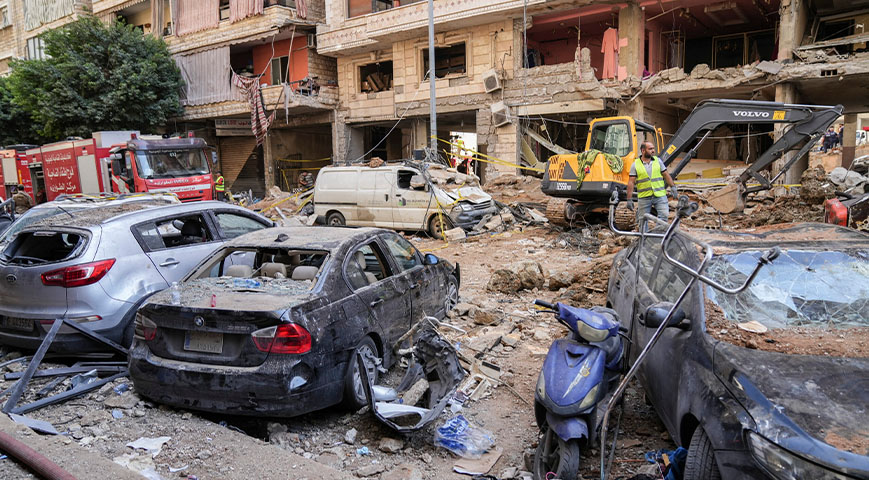Israeli airstrikes on Lebanon have led to the deaths of at least 492 people, including 35 children, marking the deadliest day of cross-border violence since the Gaza conflict began.
The strikes, targeting Hezbollah militants, have escalated tensions between Israel and Lebanon, drawing sharp condemnation from Arab states.

This latest violence follows the October 7 attack by Hamas on Israel, which has now expanded to include Hezbollah and other Iran-backed groups.
Did you read this?
The Israeli military reported hitting around 1,600 sites across southern and eastern Lebanon, including a targeted strike in Beirut, part of its “Operation Northern Arrows.”
While Hezbollah confirmed that Ali Karake, a senior commander, had survived an attack in Beirut, they responded by launching missile volleys at Israeli military positions.
Lebanon’s Health Ministry reported widespread casualties and displacement, with thousands of families forced to flee. Explosions were also reported near Baalbek, while residents in Israel’s Haifa sought shelter after air raid sirens.
Global powers, including France and Egypt, urged the UN Security Council to intervene and called for de-escalation to avoid a wider regional conflict. Israeli officials emphasized that their strikes targeted Hezbollah’s military infrastructure, with Prime Minister Benjamin Netanyahu stating that the goal is to change the security situation in the north.

Hezbollah has warned that they are entering a new phase of confrontation, responding to Israeli strikes by targeting sites near Haifa.
International leaders, including US President Joe Biden, continue efforts to de-escalate the crisis, while the G7 warned of the severe consequences of further conflict.









